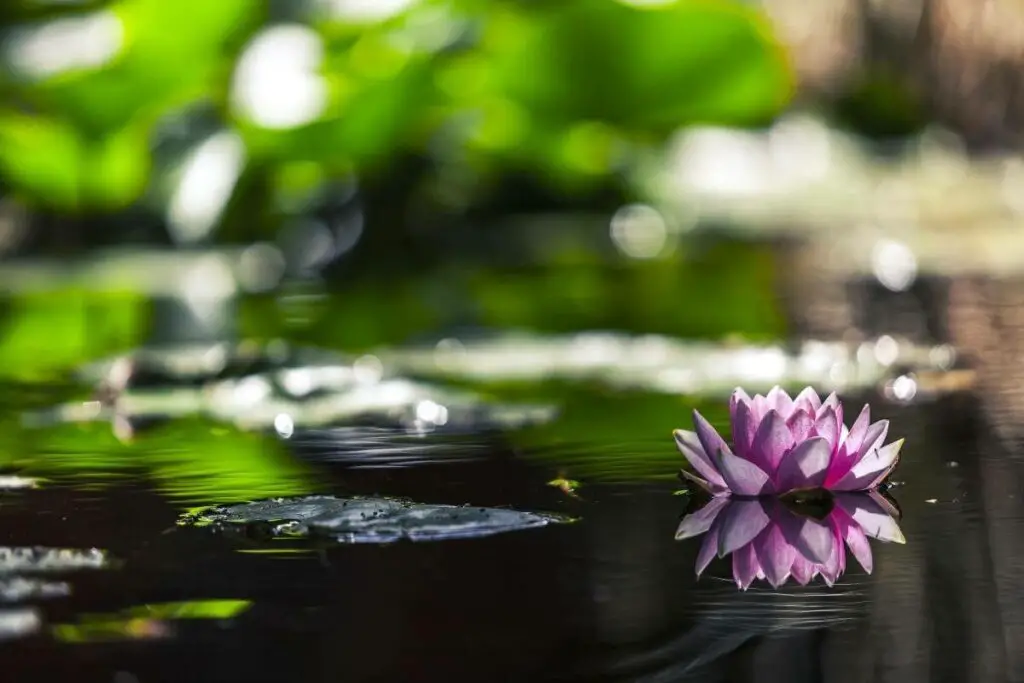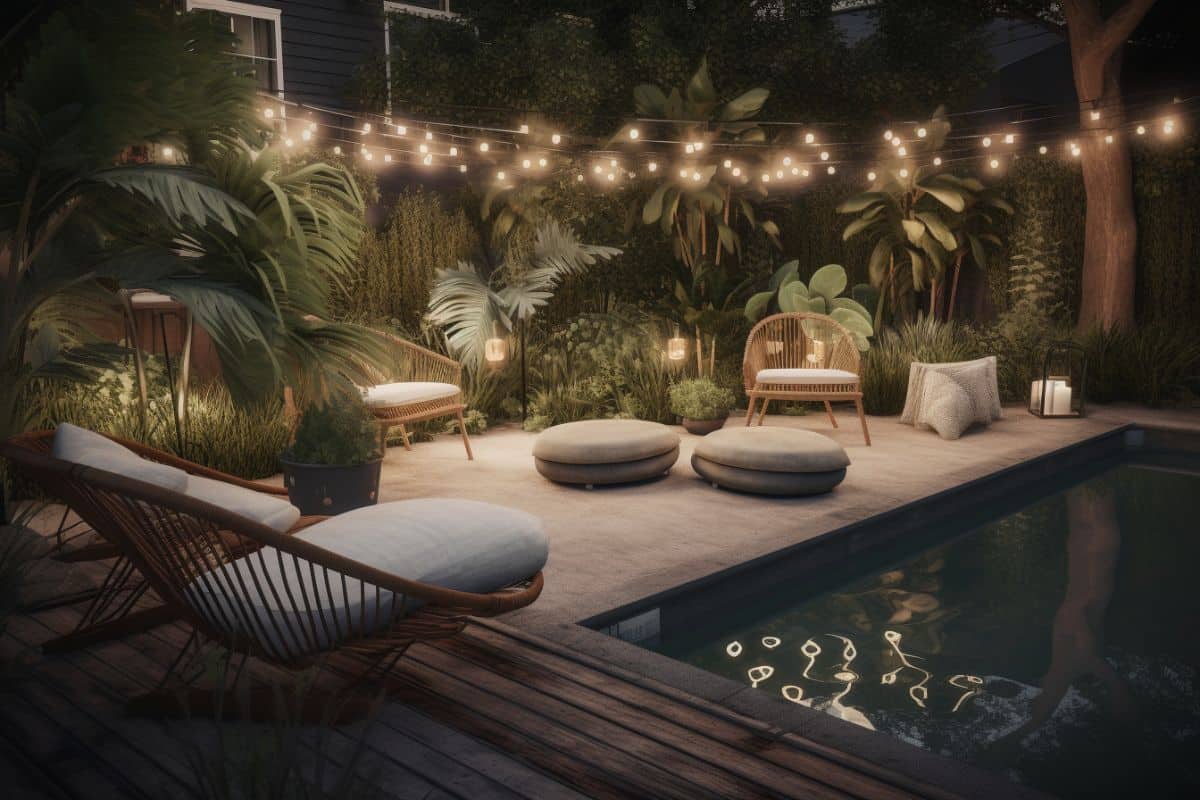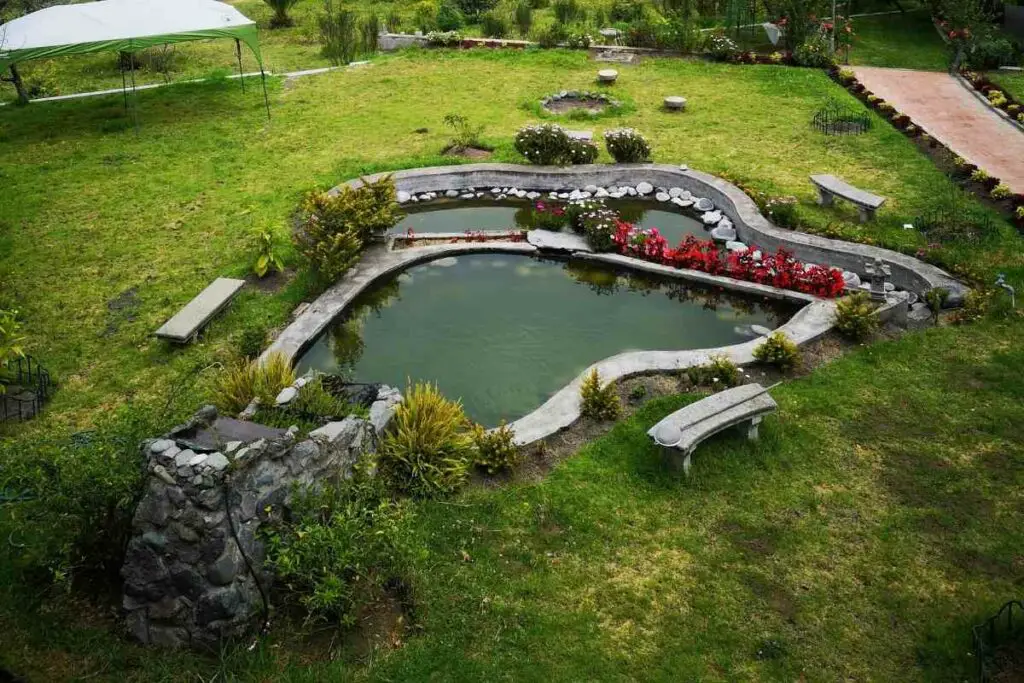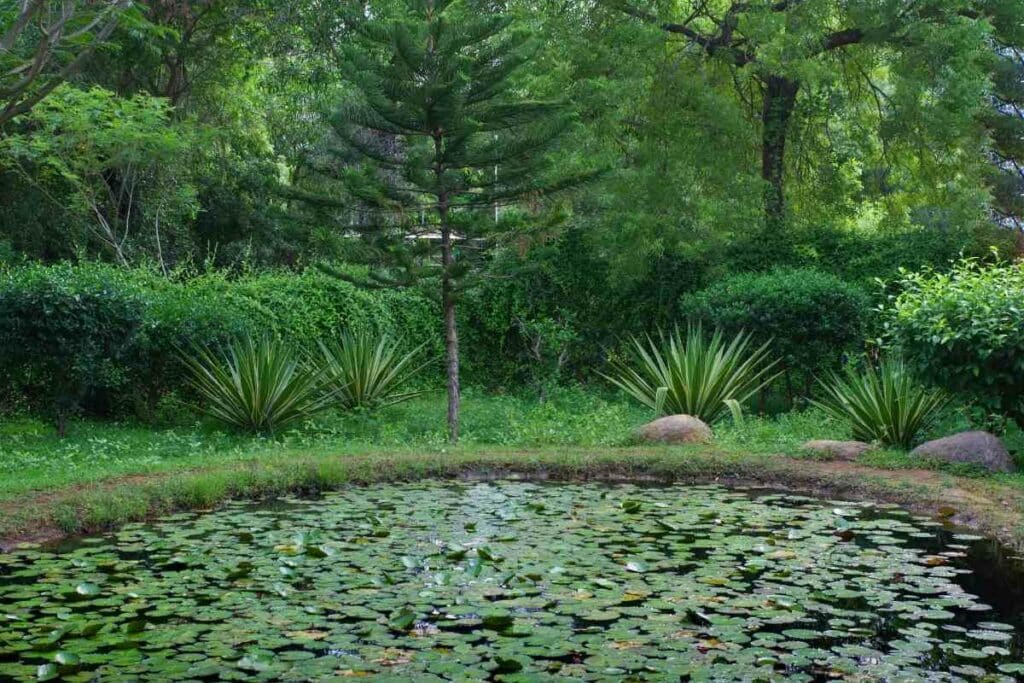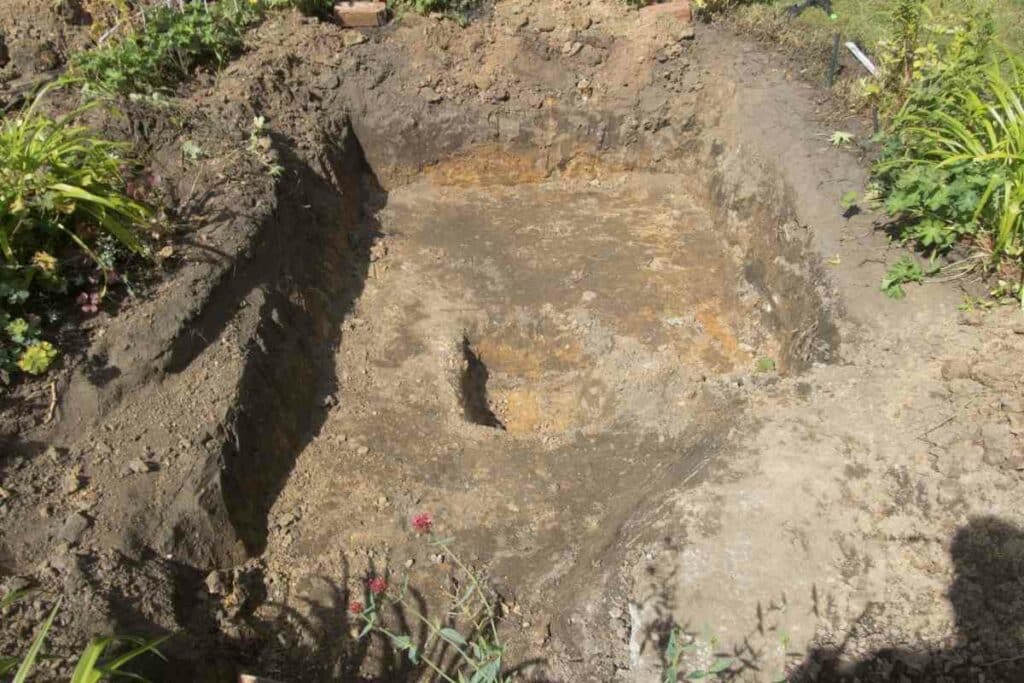While a black pool will be unique, it is not a good idea to paint your swimming pool black. Some of the reasons why you shouldn’t paint your pool black include problems such as overheating, fading, increased susceptibility to erosion and potential safety hazards due to misjudging the depth of water.
Despite these shortcomings, this trend is still popular among homeowners.
The evolution is understandable – after all, black and other darker hues epitomize uniqueness and create a stunning visual appeal.
But is it a worthwhile investment given its known risks? Read on to discover the cons of owning a black swimming pool.
Why Construct a Black Swimming Pool?
The primary reason why people choose black is because of its intensity and uniqueness.

It also makes the prospect of swimming more exciting than plunging into a light-colored pool.
However, this color has its drawbacks, as discussed below.
What are the Disadvantages of Black Swimming Pools?
Here are the top reasons why you might regret painting your swimming pool black.
Mineral Scale
Several chemical reactions occur when plaster comes into contact with water, including the buildup of mineral scale.
This is the whitish calcium deposit that forms on wet surfaces, mostly in bathrooms and kitchens. In black swimming pools, this scale builds up in enormous amounts.
Remember This: Mineral scale accumulates faster in dark-hued pools because they absorb heat more quickly than standard pools. As such, the reactions occur faster.
Fading
Another problem with black pools is that they fade quickly and unevenly.
Precisely, your pool’s walls will have uneven, faded color patches that start appearing a few months after you fill water.
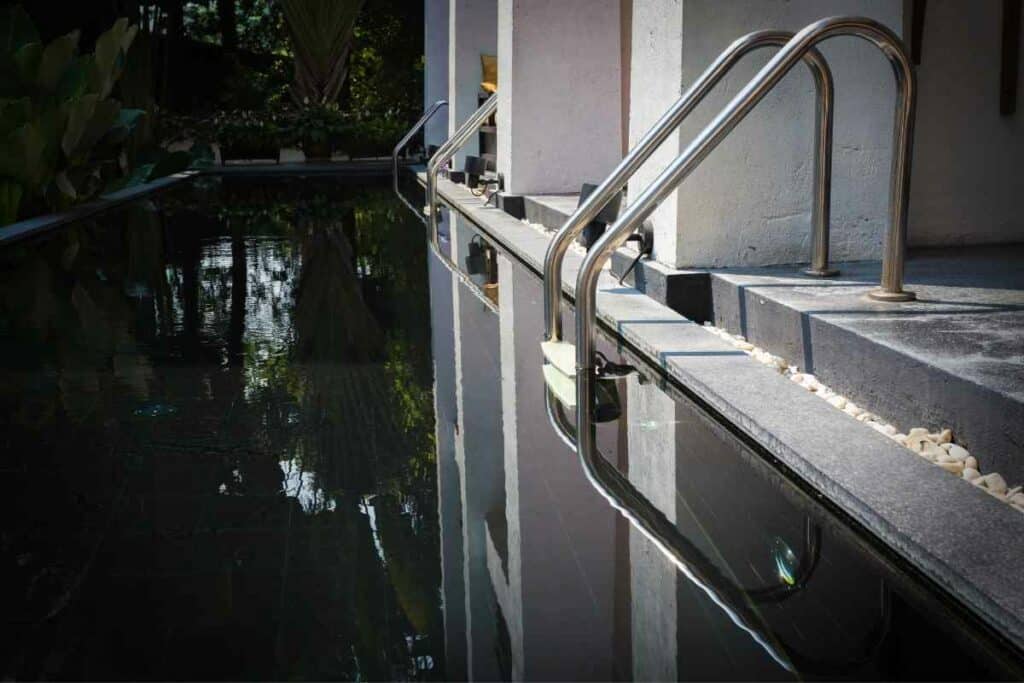
Even worse, the fading often reveals the footsteps and trowel marks made by the people who constructed the pool.
These blemishes tend to be more conspicuous on dark-colored finishes than white or light blue swimming pools.
Erosion
If you think that fading and mineral scale buildup is annoying, wait until your swimming pool walls start eroding.
When calcium, alkalinity, and pH levels drop, acidity increases which upsets the water’s chemistry.
As a result:
- The water begins eroding the pool’s walls.
- Over time, the etched spots hurt your pool’s visual appeal.
- In the worst-case scenario, etched plaster causes tiny holes and micro-fissures that have a rough texture.
If you happen to rub your body against these while swimming, you can get injuries.
Additionally, etching provides conducive breeding grounds for algae, bacteria, and other waterborne organisms.
These can be potentially hazardous to your health.
What’s More: Removing algae is a challenging and time-consuming task.
Safety Concerns
It’s vital to prioritize safety when constructing a swimming pool.
However, some people have concerns over the safety of dark-hued swimming pools.
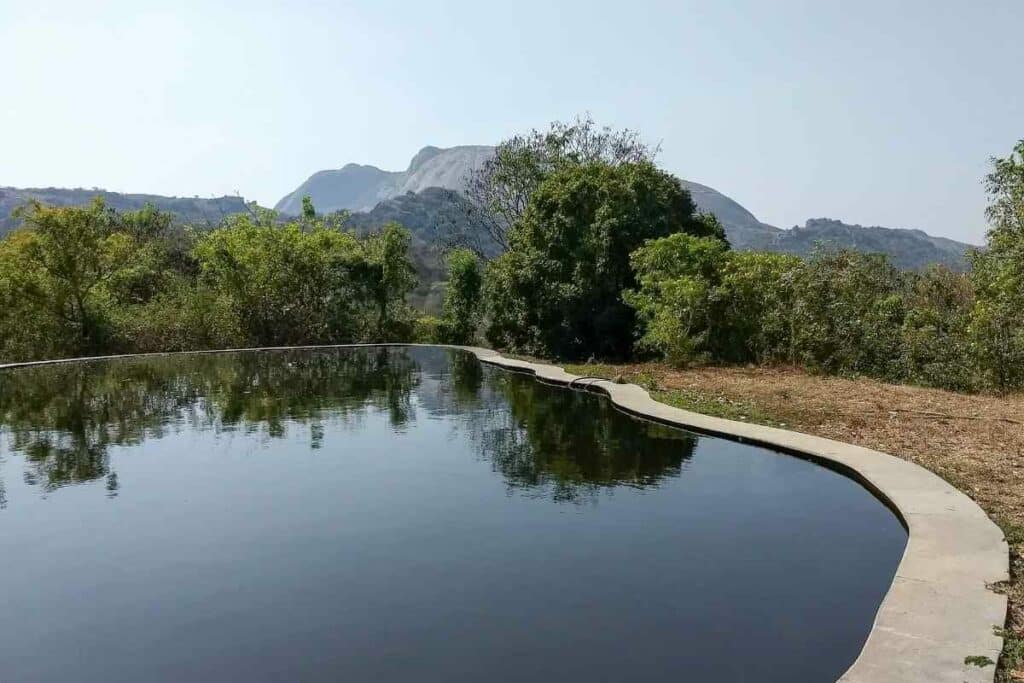
According to their argument, the dark color interferes with the swimmer’s depth perception.
This means that the walls and the bottom appear farther than they are.
Consequently, you’re at a higher risk of hitting yourself against the pool, causing injury.
The interference can cause severe injuries to swimmers plunging into the pool from a deck.
It’s usually hard to tell how deep the water goes at particular ends of the pool.
If the pool doesn’t have signs indicating depth, you might end up hitting your body against the bottom because of misjudgment.
Reduced Home Value
Most potential buyers see swimming pools as a valuable installation when looking to purchase a property.
However, this isn’t the case with black swimming pools. In fact, they can hurt your home’s value.
You might find delight in the uniqueness of your dark-colored swimming pool, but not everyone feels the same.
Such people might be hesitant when you try to sell them your property.
Wonder Why? Most people are familiar with ‘blue’ swimming pools, a color resulting from the sky’s reflection on the water. To them, a black swimming pool can be an instant turn-off.
Application Complexities
Plaster application is an intricate process, even when skilled professionals oversee it.
It’s normal to experience construction delays caused by hot weather and humidity. Such conditions affect the final outlook of the plaster.
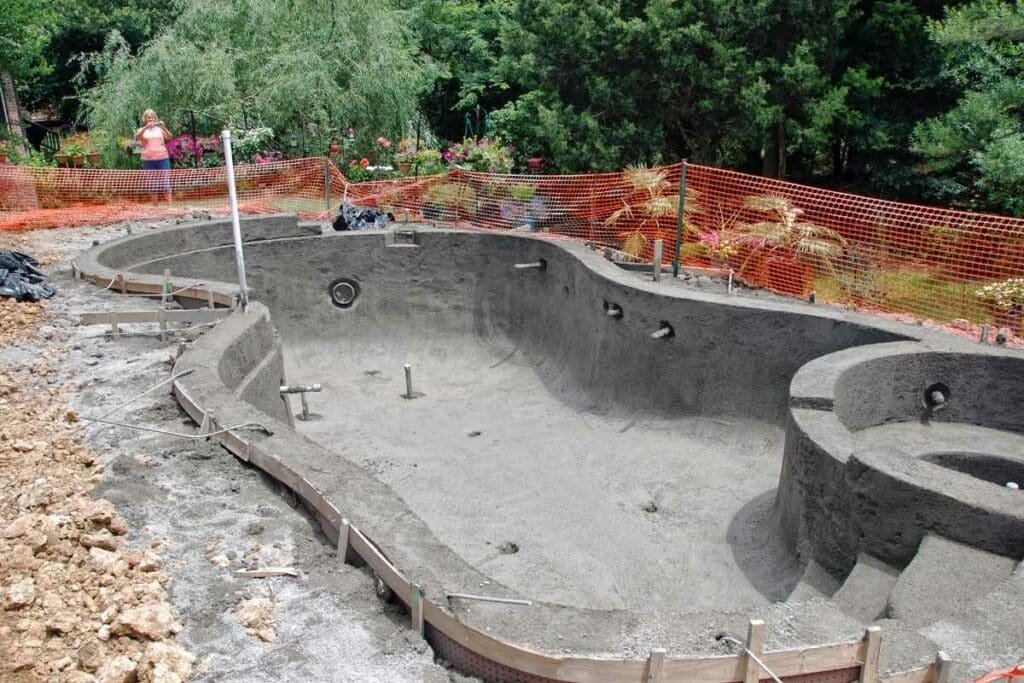
Additionally, the complexity of the process means that you’re likely to end up with micro-cracks, color patches, and delamination in the pool’s walls once the project is complete.
These result from human error, such as improper mixing, presence of contaminants, and so on.
How do these affect black pools? With dark colors, the blemishes mentioned above are more conspicuous.
You are more likely to enter into a dispute with the contractor than if you had a light-colored pool.
Overheating
Swimming pools allow you to cool off during hot summer days. The problem with black is that it absorbs heat faster than other colors.
For this reason, the dark-colored pool can be a bit uncomfortable in warm conditions because the water gets hot.
On average, black swimming pools get five to ten degrees warmer than other options. The dark pigments absorb and retain heat longer.
Keep In Mind: While this is convenient during colder months, the water can get uncomfortable when the sun is scorching.
Legality
Although this isn’t a common problem, some local authorities prohibit the construction of black-bottom swimming pools.
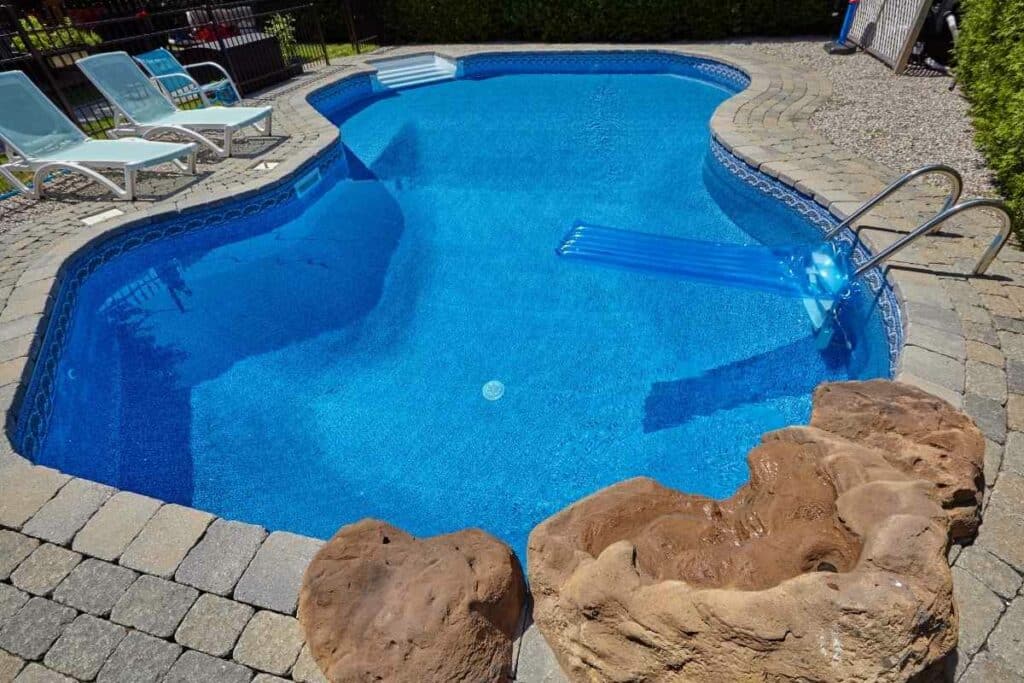
Specifically, some cities and states require homeowners to construct pools below a specified pigmentation level.
Anything too dark is deemed unsafe and can land you a hefty fine. Before going black, ensure that you don’t contradict local regulations.
Should I Build a Black Swimming Pool?
Ultimately, the type of finish you choose to apply to your pool depends on your preferences.
Black swimming pools have several advantages.
For instance, they are unique and have an eye-catching appearance.
They also retain heat longer, making them useful in areas that receive tiny amounts of sunlight.
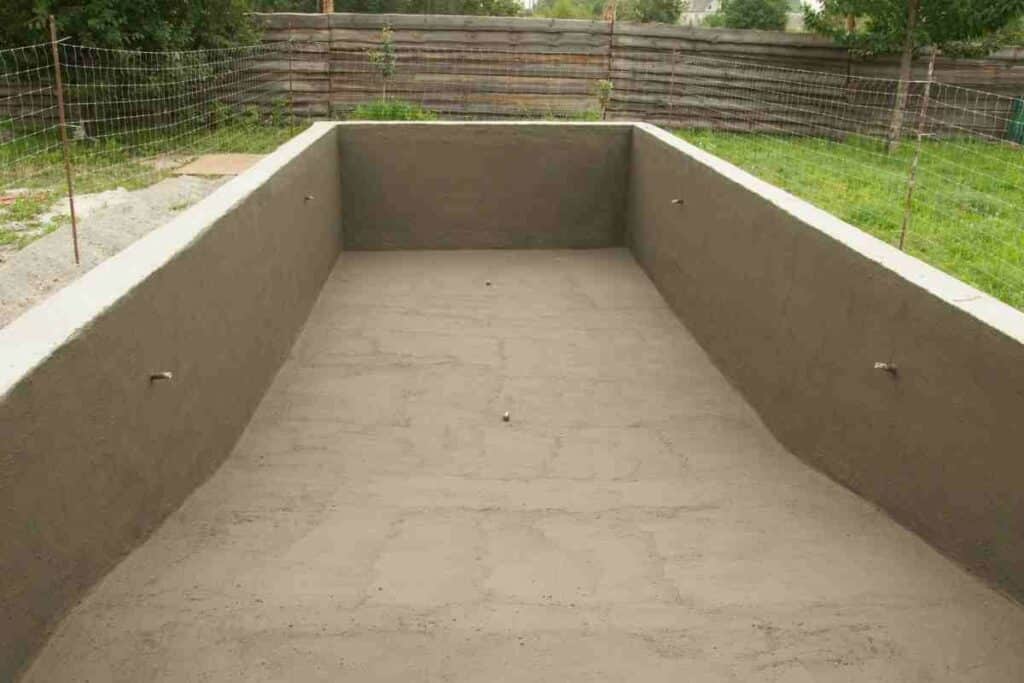
However, the disadvantages outweigh the advantages of building a black swimming pool:
- Such installations are more susceptible to mineral scale buildup, fading, and erosion.
- They can also hurt the value of your home and make construction blemishes more noticeable.
- The worst of them is that dark colors affect your depth perception, increasing the risk of injuries.
Final Thoughts
To surmise, we wouldn’t advise you to construct a dark-colored pool.
Instead, choose the conventional colors and add water features like fountains and lighting if you want to make your pool area more attractive.
You May Also Read
- What Should I Put in the Bottom of My Wildlife Pond?
- Backyard Oasis With Pool: Creating a Relaxing Retreat in Your Backyard
- How to Find Pond Leak (Quick Method to Find the Leaks)
- Pool Ledge Lounger – Complete Buyers Guide
- Do Garden Ponds Overflow When It Rains
- How To Fill A Pond With Water (Complete Guide)

